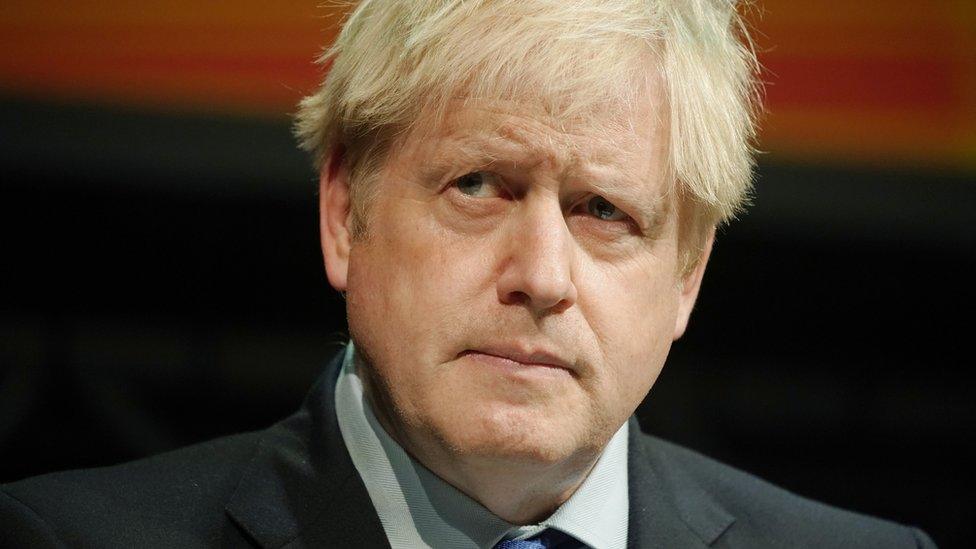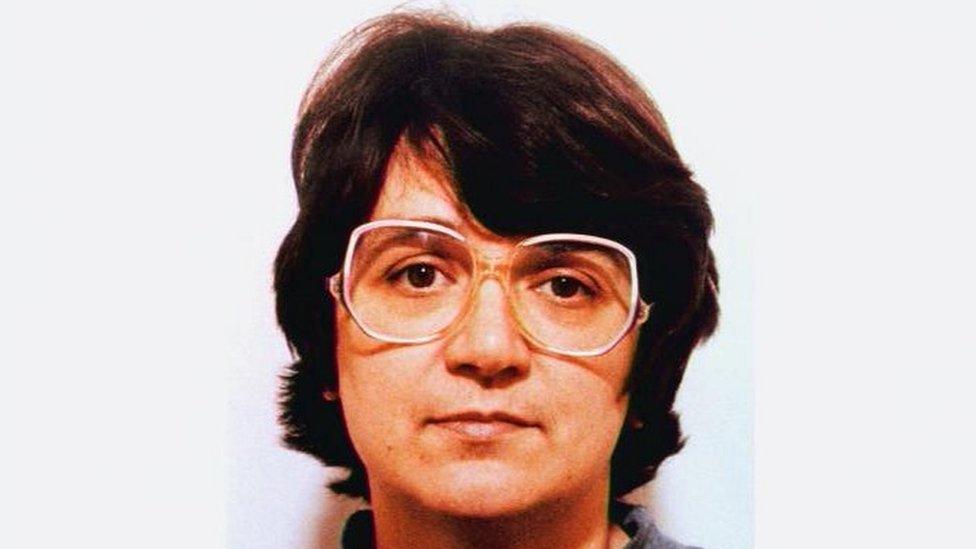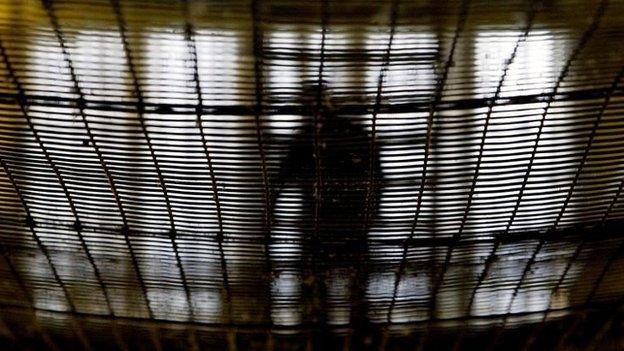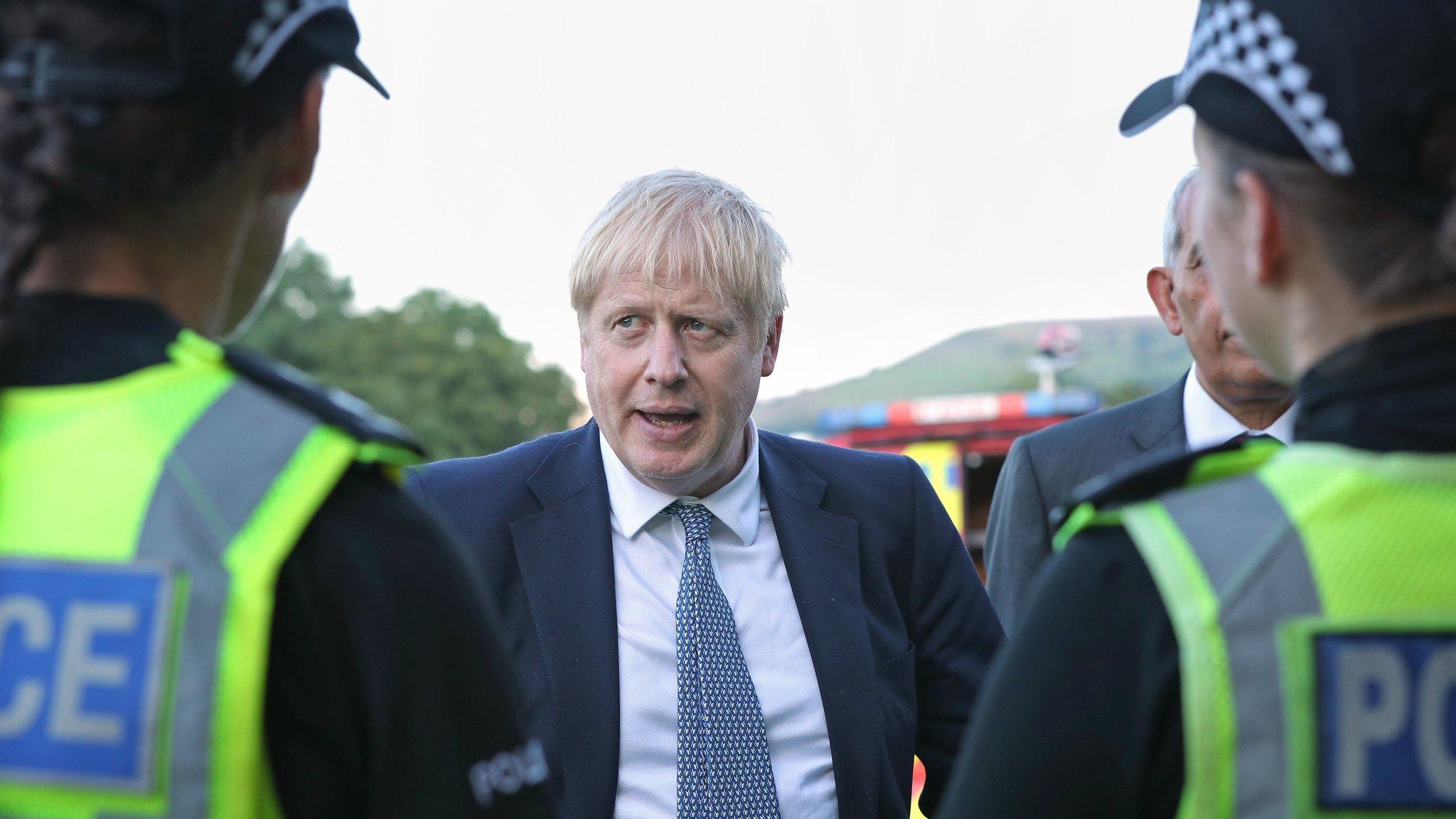PM plans whole-life jail terms for more child killers
- Published

The government is planning changes to the law aimed at bringing in longer sentences for some of England and Wales' worst criminal offenders.
The Sunday Telegraph says, external the measures could affect the sentencing of murderers of pre-school age children.
The government also wants violent and sexual offenders to serve at least two thirds of their terms, the paper said.
The prime minister plans to use next month's Queen's Speech to introduce the changes, according to the Telegraph.
These could be contained in a Sentencing Bill or a statutory instrument, a form of secondary legislation which can be brought in without Parliament having to pass a new Act.
The government would not give any detail of the planned law changes.
But a Ministry of Justice spokesperson did say Prime Minister Boris Johnson ordered an urgent review into sentencing policy last month and would bring forward proposals "shortly".

Rosemary West and her husband, Fred, were arrested in 1994 accused of murdering 12 people over 20 years. Fred West killed himself in jail a year later
Currently, judges sentencing murderers of children in cases which involve abduction or a sexual or sadistic motivation can consider a whole-life order - or "life means life" order, which means the offender will never be released from prison.
Rosemary West, who was convicted in 1995 of murdering 10 young women and girls after first subjecting them to horrific sexual violence, is in prison on a whole life order.
It is possible the government might try to broaden part of Schedule 21 of the Criminal Justice Act 2003, external which provides a "starting point" for judges considering whole-life orders for murderers in exceptionally grave cases.
Where there is no evidence of abduction or a sexual or sadistic motivation in a child murder case, the offender must still be given a life sentence.
A life sentence differs from a whole-life order in that a judge can specify the minimum term they must spend in prison before becoming eligible to apply for parole.
Once released, an offender remains on licence for the rest of their life and can be recalled to prison at any time.
Other measures from Mr Johnson, outlined in the Telegraph, include:
Changing government policy on prisoners becoming eligible for release at the halfway point of their sentences. Instead it wants violent and sexual offenders to serve at least two-thirds of their full terms
Imposing sobriety tags on repeat drunken offenders. The ankle bracelets, which detect alcohol levels in the wearer's sweat, alert the authorities when someone has breached an abstinence order
Moving away from the early-release system towards one of "earned release" and risk assessment for violent and sexual offenders
Expanding the scope of crimes that can be reviewed under the unduly lenient sentences scheme, external to include stalking, coercive control and looking at child abuse images. The scheme allows members of the public to ask for sentences for murder, rape and child sex crimes to be looked at again

Analysis: Message appeals to voters' crime concerns
By Peter Saull, BBC political reporter
The exact nature of the changes to sentencing are not yet clear, but this is a further attempt from the Boris Johnson government to appeal to voters' concerns over crime.
Downing Street has a three-pronged strategy - deliver Brexit, defend the NHS and get tough on crime.
The plans for stronger sentencing guidelines follow announcements on extra police officers and an extension of stop and search powers.
It's a message that is likely to appeal to traditional Conservative voters but also Labour voters worried about rising crime levels.
Boris Johnson is yet to secure the general election he craves, but the campaign has been under way for some time.
- Published6 May 2014

- Published14 October 2019
